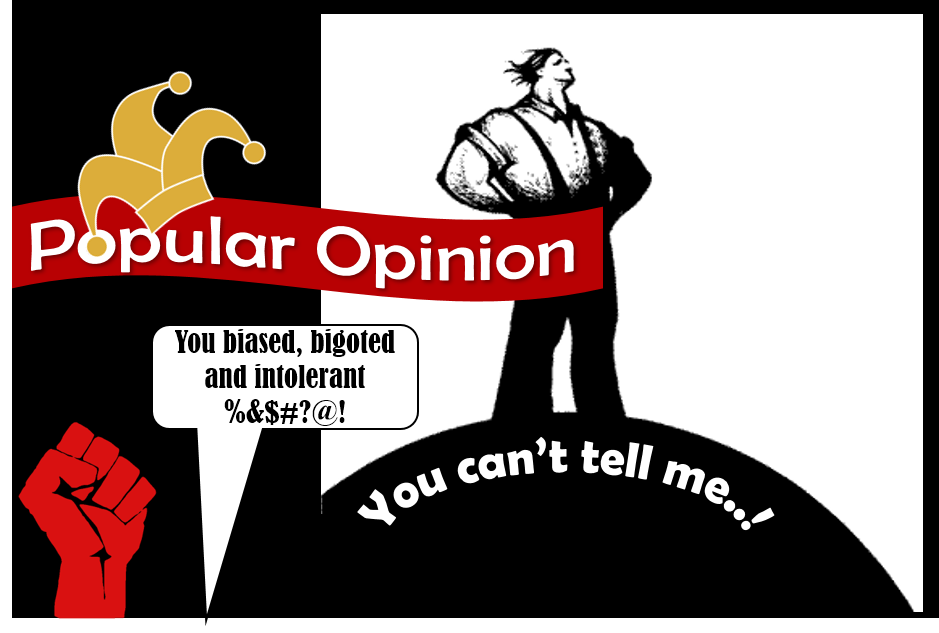An ancient itch we cannot seem to scratch is our ongoing inherited
Defiant, Insolent, Hubristic and Devoid of Discernment

The Characteristics of Conventional and Popular Wisdom
Drinking from a cup of so called “progressive enlightenment” our culture imbibes on an elixir of lies, blindly accepting worldview positions without question. With wits dulled by inebriation and an addiction to pop culture and the resulting popular wisdom, we are witnessing an unprecedented erosion of discernment in our culture. What has come in its place? Defiance, insolence and hubris.
Because of the growing popularity of these worldview positions and supporting statements, people are not questioning so called evidences that alleged to “prove” the claims. Without critical validation and then buoyed by suspicious evidences, we are subjected to a constant bombardment of unproven and disingenuous claims. Popular worldview statements are repeated over and over in the media and online, then evolving to become conventional wisdom, despite lacking rigorous examination and an absence of factual and logical integrity.
Why is this happening? Why are people supposedly evolving their positions (favorite line by politicians) towards conventional wisdom?
I would posit that for many it is a fear of being out of alignment with “the popular kids,” for others it is a blind and reflexive reaction or angry rebellion against institutions, systems and worldviews where prior misuse and abuse caused pain and discomfort.
What is the solution? Can this widespread societal phenomenon of eroding wisdom be stopped? Yes, but only at the individual level.
When we speak up and reason aloud, it causes people to either shrink back from conflict or engage in dialogue. But be ready, many people are uncomfortable in conflict and are unable to separate emotion from discussion. Some will yell as they retreat claiming that everyone knows this (their position) to be true, often resorting to inflammatory speech and belittling you as you question their claim.
The opportunity is to pursue productive and calm dialogue asking for reasonable evidences to substantiate their claims. If you pursue this dialogue, what you will find is many people have assumed a position without research and believe there are others wiser than themselves who have already proven their case.
People will not open this door to reasonable dialogue easily, but it behooves us to be prepared and informed, so that when they give us the chance, we are able to engage in reasoned debate.
What could possibly cause someone to open the door to a dialogue? Simply this, our own rejection of conventional wisdom and questioning of the status quo.
When we question aloud the popular and unsubstantiated wisdom of our times, asking for evidences that substantiate the claims, the confirmation that they are following blind will start to emerge. Many will simply scoff and dismissively state that everyone knows something to be true, attempting to belittle your lack of insight; however, upon further gentle and respectful pressing, they will be unable to present rigorous evidences to validate their position.
This alone may not pull them out of their stupefaction, but it can have a sobering effect—making them question their promotion of popular worldviews in fear of having to substantiate the claim—possibly opening the door to future dialogue.



